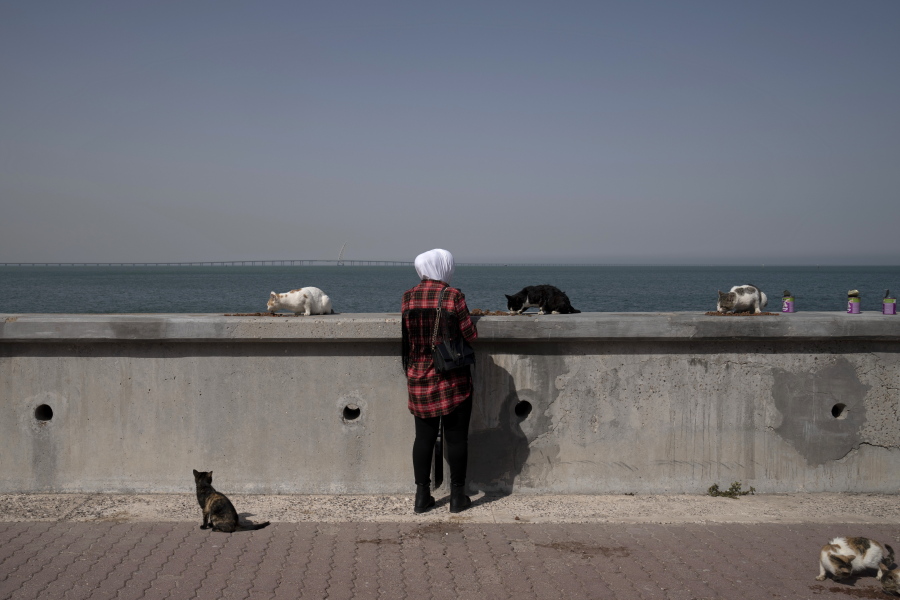JAHRA, Kuwait — It was so hot in Kuwait last summer that birds dropped dead from the sky.
Sea horses boiled to death in the bay. Dead clams coated the rocks, their shells popped open like they’d been steamed.
Kuwait reached a scorching temperature of 127.7 degrees, making it among the hottest places on earth.
The extremes of climate change present existential perils all over the world. But the record heat waves that roast Kuwait each season have grown so severe that people increasingly find it unbearable.
By the end of the century, scientists say being outside in Kuwait City could be life-threatening. A recent study also linked 67 percent of heat-related deaths in the capital to climate change.
And yet, Kuwait remains among the world’s top oil producers and exporters, and per capita is a significant polluter. Mired in political paralysis, it stayed silent as the region’s petrostates joined a chorus of nations setting goals to eliminate emissions at home — though not curb oil exports — ahead of last fall’s U.N. climate summit.
Instead, Kuwait’s prime minister offered a years-old promise to cut emissions by 7.4 percent by 2035.
“We are severely under threat,” said environmental consultant Samia Alduaij. “The response is so timid it doesn’t make sense.”
Racing to burnish their climate credentials and diversify their economies, Saudi Arabia pitches futuristic car-free cities and Dubai plans to ban plastic and multiply the emirate’s green parks.
While the relatively small populations of oil-rich Gulf Arab states mean their pledges to cut emissions are minor in the grand scheme to limit global warming, they have symbolic significance.
Yet the gears of government in Kuwait, population 4.3 million, seem as stuck as ever — partly because of populist pressure in parliament, and partly because the same authorities that regulate Kuwait’s emissions get nearly all of their revenue from pumping oil.
“The government has the money, the information and the manpower to make a difference,” said lawmaker Hamad al-Matar, director of the parliamentary environmental committee. “It doesn’t care about environmental issues.”
The country continues to burn oil for electricity and ranks among the top global carbon emitters per capita, according to the World Resources Institute. As asphalt melts on highways, Kuwaitis bundle up for bone-chilling air-conditioning in malls. Renewable energy accounts for less than 1 percent of demand — far below Kuwait’s target of 15 percent by 2030.
An hour drive outside the dingy suburbs of Jahra, wind turbines and solar panels rise from clouds of sand — the fruit of Kuwait’s energy transition ambitions.
At first, the Shagaya Energy Park exceeded expectations, engineers said. The Persian Gulf’s first plant to combine three different renewables — solar, wind and solar thermal — put Kuwait at the vanguard. The wind farm overperformed, generating 20 percent more power in the first year than anticipated, the Kuwait Institute for Scientific Research reported.
But optimism and momentum soon evaporated. The government gave up control of the project to attract private money, an unprecedented move that raised a tangle of legal questions.
Instead of pressing ahead with the successful hybrid energy model, investors devoted the rest of the park to the production of solar thermal power, the costliest kind. Years of delays and canceled tenders ensued. The project’s fate remains uncertain.



